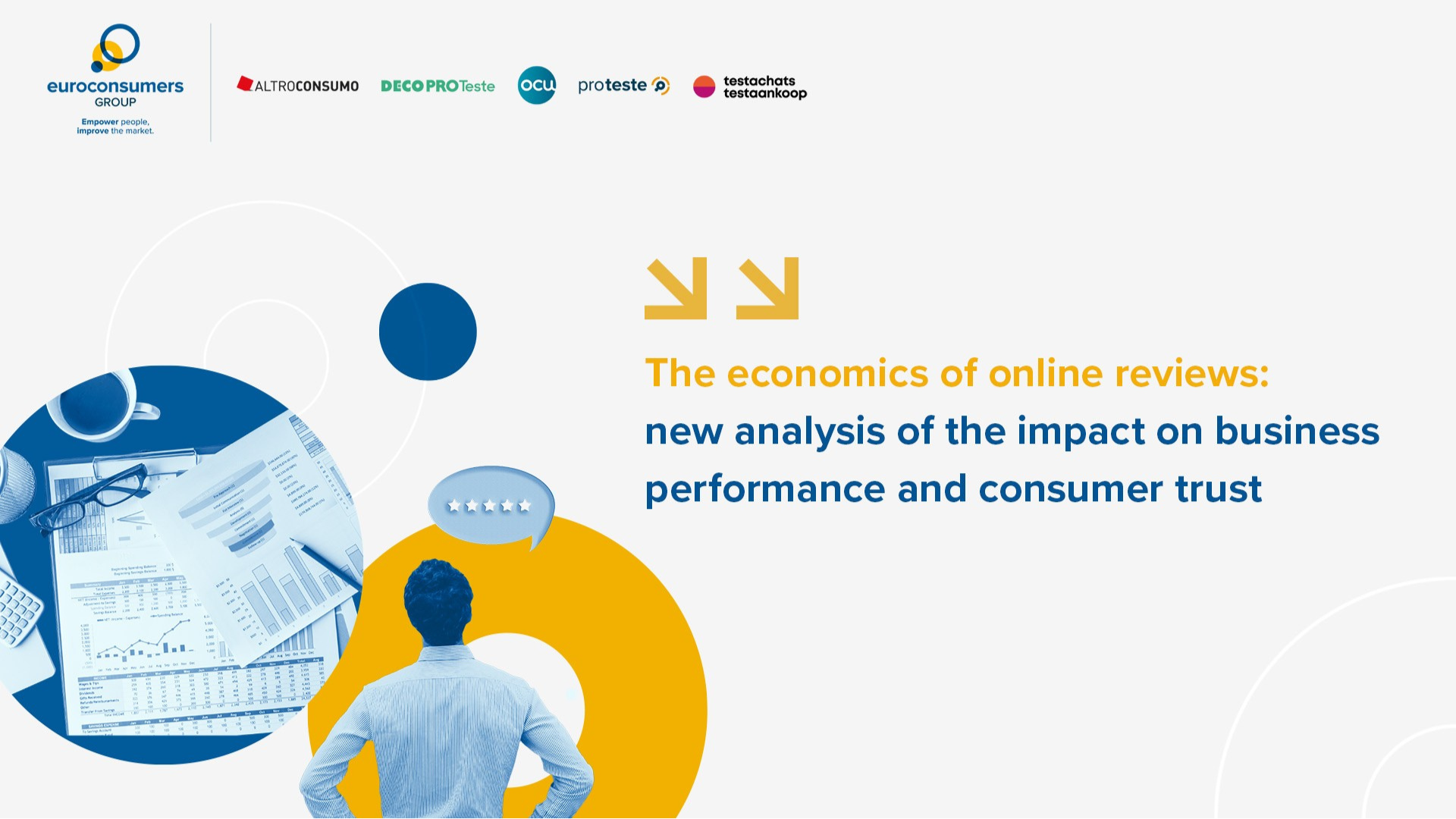
Enforcers are failing consumers on fake reviews
Euroconsumers’ member investigations have found a steady stream of fake reviews on e-commerce sites. The New Deal for Consumers’ Omnibus Directive should boost the fight agains...
Read More


Online customer reviews play a central role in shaping purchasing decisions across a wide range of consumer markets.
Whether selecting a restaurant, choosing between new appliances, or wondering if that secondhand seller will actually ship your order, reviews and ratings offer useful insights into product quality, customer service standards and overall value.
We know reliable reviews can be a great critical tool for informed decision-making and feedback, helping consumers and business work together to drive up quality and transparency across the market.
But is it possible to measure that value and gain more understanding of what the collective efforts of millions of consumers’ contributions means to the economy and market function?
This is what Euroconsumers latest piece of research to quantify the economic value of customer reviews has set out to do. The research also offers another perspective on the challenge of fake and misleading reviews.
Fraudulent reviews can cause consumers to inadvertently pay more for lower-quality products. Businesses that invest in quality and service then risk being undermined by traders who manipulate review systems to gain visibility and sales.
But as well as minimising the harm from fake or misleading reviews, there’s an important job to be done to maximise the potential value of online reviews. In this scenario, we empower consumers to improve the market through transparency and fair competition.
This new research offers a fresh lens on the discourse surrounding review assurance systems—shifting the focus from the pitfalls of fake reviews to the possibilities unlocked when systems grow trust through verification and robust quality control mechanisms.
To gain a full understanding of the economic value of online customer reviews and Euroconsumers latest report, The Economic Value of Online Reviews contributes major new evidence to this field.
The Economic Value of Online Reviews research set out to measure the impact of online reviews on both business performance and consumer trust – recognising that both go hand in hand to create vibrant, fair and sustainable markets.
Economic experts from the University of Siena and the Università Cattolica del Sacro Cuore worked alongside our experienced consumer research team to create a first-of- its-kind-view on the market impact of online customer reviews. Here’s how they developed the findings:
This holistic analysis of users and businesses resulted in a deeper understanding of the economics of consumer online reviews. The rest of the blog showcases the headline findings.
Behavioural experiments were carried out with consumers designed to give an indication of how consumers valued the information in customer reviews. Here’s how they were set up:
The behavioural experiment indicated that customer reviews are valuable to consumers, in particular those which are deemed to be reliable.
In fact, the results put the “value of information” in the order of 3-4% of the price of the product for reviews and a further 2-3% when such reviews are verified
Although these results are from research experiments and not real life data, the finding that consumers are willing to pay 5-7% more for a product with verified reviews is significant.
This new evidence enriches the expanding body of research on consumer generated reviews. By emphasizing the informational value these reviews offer to consumers and highlighting their corresponding benefits to businesses, it provides a valuable and timely contribution to the literature.
This research brings a fresh perspective to the debate on assurance systems for reviews – away from what can go wrong with fake reviews, towards what can go right when trust is built with verification and quality control systems,
The research shows the benefit of increasing trust in online reviews for both individual consumers and businesses alike. These initial findings should be subject to further analysis, ideally based on actual product sales data and consumer decisions.
Euroconsumers sees a strong opportunity for industry, policymakers and consumer organisations to work together to cultivate a competitive and vibrant digital economy, backed up by reliable online review systems that enable the flow of trusted information to empower consumers and improve the market.
Disclaimer: Euroconsumers, through its consulting firm Synallagma, collaborates with independent academics and researchers to advance policy in the digital services space. This study was funded by Amazon EU S.à r.l. The academic authors acknowledge receipt of a grant from Synallagma, which ensured their full independence. The views expressed in this report are solely those of the authors and do not necessarily reflect the positions of Amazon.